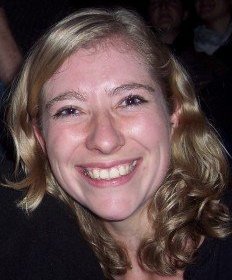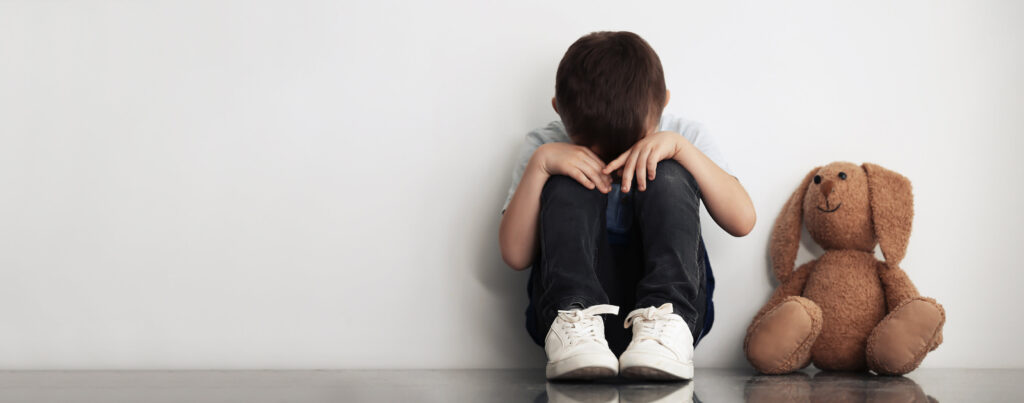Conscious Parenting segment
As adults, the concept and idea of child sexual abuse (CSA) is a hard and rather unpalatable topic to talk about. The less we talk about it and understand it, the more chance we give it to fester, grow and become an infected sore in our society. Our attitude of fear of broaching this subject is reflected in our society today. Child trafficking and child sexual abuse are rife, especially in South Africa, our home country.
According to the World Health Organisation, one in five women and one in 13 men have experienced CSA under the age of 17 years. According to the Optimus study from The University of Cape Town 19.8 per cent of adolescents have reported being sexually abused in one form or another – 20 per cent of boys and 19 per cent of girls. The South African average is higher than the global average. This is an alarming number of children and these numbers are only the ones that have been reported. Very often this becomes a family secret and the survivor is too afraid to come forward, as they want to avoid a fallout in the family or community. The fact remains that sexual abuse does not happen merely in the bad parts of town, or lower income households. The act of child sexual abuse does not only rear its ugly head where we believe it does. It happens next door with the Smiths, it happens to the people that seem the happiest. It happens at schools, it happens at church, it happens at home.
According to Mike Lew in his book Victims no longer – The Classic Guide for Men Recovering from Sexual Abuse – one of the main issues is really the act of incest (but he does not compare the severity between different types of CSA). He defines incest as follows: “Incest differs from other forms of sexual abuse in that the perpetrator is assumed to stand in a protective (parental) role to the victim. The very person the child should be able to turn to for care, comfort and understanding violates that trust by sexualising the relationship.” He continues to discuss who these people may be. The broader definition of incest therefore includes relatives by blood or marriage, parents, stepparents, older siblings, neighbours, family friends, teachers, members of the clergy, therapists, physicians, babysitters, camp counsellors or any other caretaker. The reason this form of abuse is labelled under incest is because a child is vulnerable and needs people to guide, love and protect them. When a child’s trust is violated so terribly in this way, the consequence for the child becomes a lifelong struggle with trusting those that they encounter. This affects their ability to trust the world and their place in it. It affects their ability to have healthy connections, friendships, intimate relationships and relationships with themselves. The impact is severe in that the act of CSA affects the child’s self-esteem, their ability to discern what love truly is and how to navigate the world without trust.
Having read Mike Lew’s book, I came to realise a couple of things. As I am a survivor of CSA myself, reading this book confirmed to me that there is very little difference in effects of CSA for men and women. The effects are lifelong patterns that require a great deal of work to be undone. Why then do we seem so adamant not to speak or educate ourselves about this topic? If you look at the percentage of CSA in South Africa, we are looking at a higher percentage of boys versus girls. In South Africa we focus our attention on women and children, however I think we forget that children include both girls and boys and eventually boys become men. We are not looking at the victimhood of women. We are looking at the desecration of the innocence of the child.
In my experience (which has not been limited), when a child tells their parent that they feel uncomfortable with how they are looked at, seen, spoken to or touched, the automatic or even natural reaction from a parent or caretaker may very well be denial. It may come to pass that, when the abuse is confirmed, the child may even be blamed. No parent wants to consider that something so terrible could happen to their children, or that anyone they know, respect, are dating or are connected to is able to facilitate this crime. I sometimes feel that we forget that this is a crime. It is a crime for a reason. The long-term effects for the survivor of CSA are devastating – creating a lifelong mental prison that the survivor tries so desperately to escape. It does not just stop after the act. The effects include a deep sense of guilt and shame, anxiety, anger, a need to be in control, fear of being seen, helplessness, addiction, intrusive thoughts, suicidal ideation, sexual acting out, long-term physical illness, disassociation, difficulties in communication, codependency, low self-esteem, linking abuse with love, fear of speaking out, isolation, suicide, confusion about roles/identity/sexuality and an inability to say no – this is a short list of a very long list of effects that adult survivors live with. It is very possible to overcome these patterns with dedication, self-love, discipline and effective personal development practices like therapy, coaching and spirituality.
My mother denied that my stepfather had sexually abused myself and someone else for two years after the other party told her – before she got a confirmation from both of us that this in fact was the case. Denial protects us from the darkest, ugliest, and scariest aspects of the world we live in. So what is the best way to deal with your child opening up about sexual abuse? Listen with awareness and understanding. Be courageous. Face the fear head on because I promise you that if you try to hide your head in the sand, it will just keep poking you on the shoulder. Take yourself and your child to a specialist practitioner and give your child love, support and understanding. Do not blame yourself, it is not about you or your failure as a parent. Its about us running away and avoiding the truths of the world that we are far too uncomfortable to accept.
Romy Morsner is based in Randburg, Gauteng and offers sessions face-to-face as well as online via zoom – email romy@romysrooms.com
www.romysrooms.com/adaptive/adaptive.html


